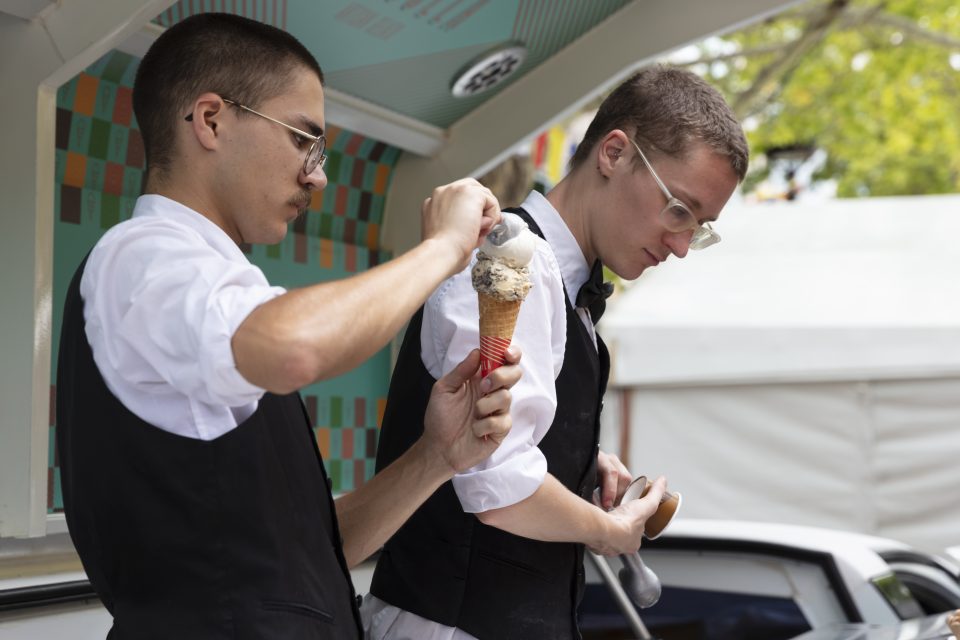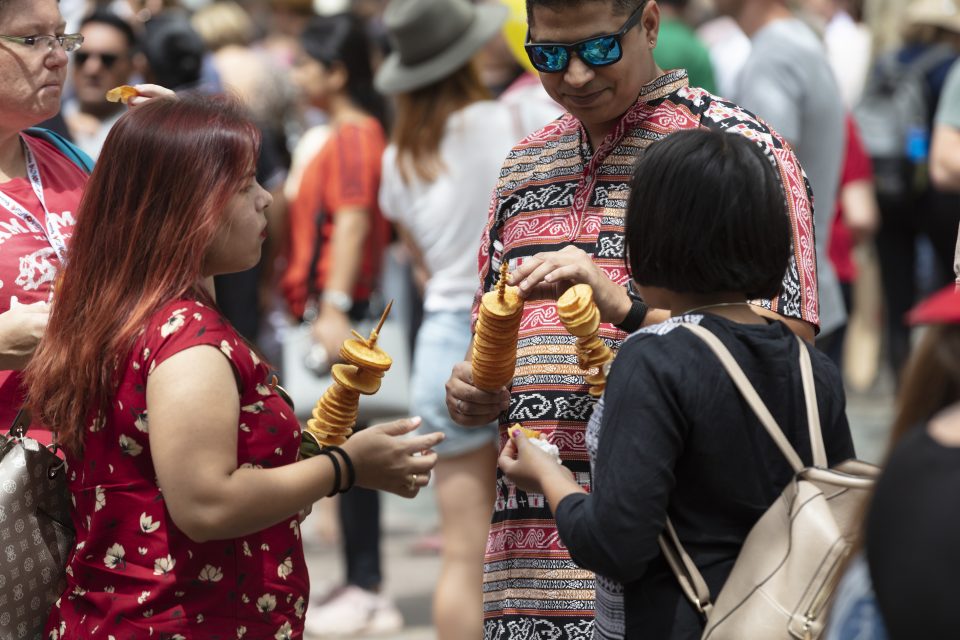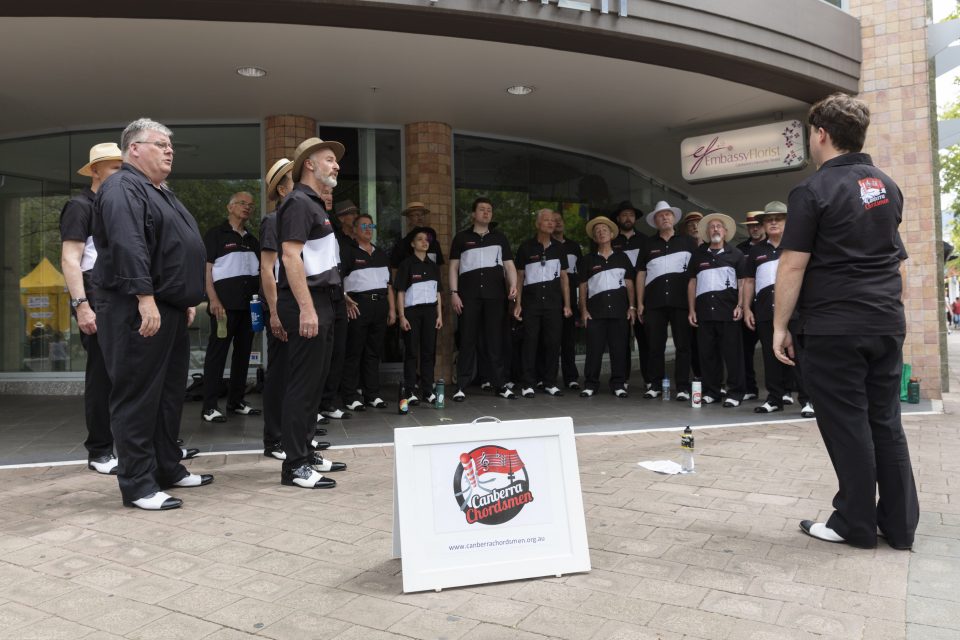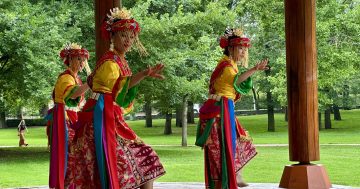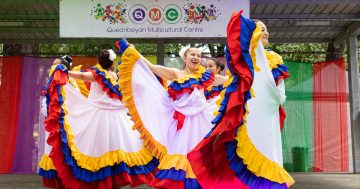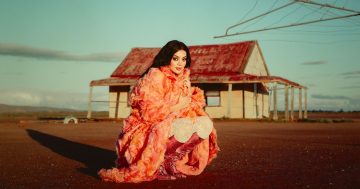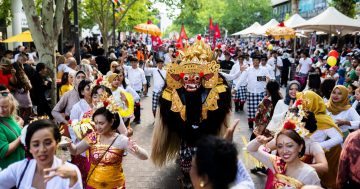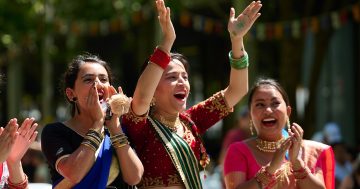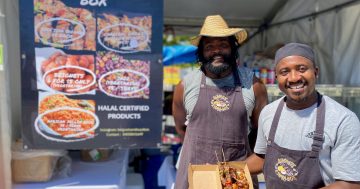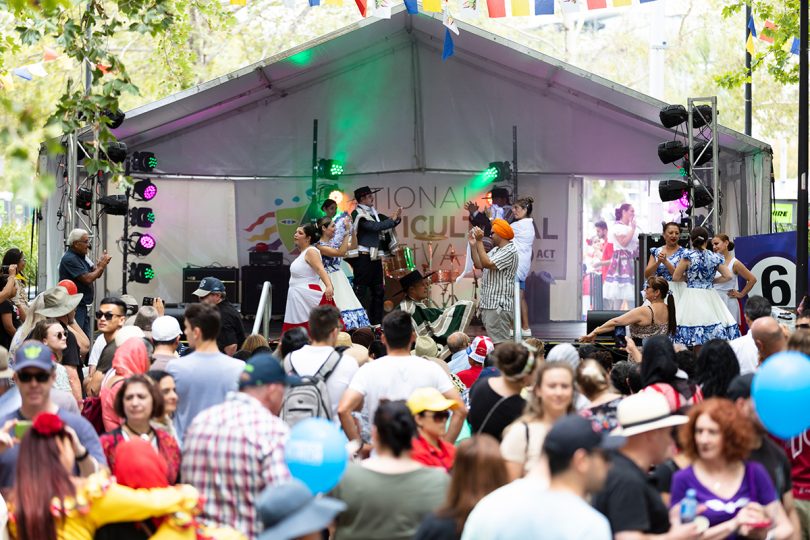
This year’s National Multicultural Festival again drew large crowds. Photos: Thomas Lucraft, Region Media.
Organisers of the National Multicultural Festival have declared this year’s event as on par with the most successful, with large crowds enjoying perfect weather and an array of great food, fine music and well-overdue celebrations.
While final numbers are still being crunched, about 200,000 people munched, danced and weaved their way among more than 350 stalls and 150 performances from six continents.
Festival director Azra Khan told Region Media this year’s festival was flat out from the opening night’s headline concert featuring singer Vanessa Amorosi to Sunday’s cooking demonstrations with former Masterchef winner Adam Liaw.
“I think the weather was just brilliant, as that tends to be the number one complaint that the festival is on during what is normally the hottest time of the year,” Ms Khan said.
“The weather really brought people out and they kicked on through the night.
“Had the festival been on the week before, which is when it was initially scheduled, we would have been washed out, so that’s something we’re very happy about.”
While there was some impact on the festival from many members of the Chinese community being unable to attend due to travel bans associated with coronavirus, Ms Khan said it provided the opportunity for others to showcase their culture.
“Unfortunately, some of our international acts on the China stage missed out and a whole contingent of volunteers were unable to attend, but there was still plenty of activity in the space.
“While some of our Chinese community that did come were a little anxious about feeling unloved, we still had such great engagement with the Chinese community. We still had all the stalls and a number of community-based performers and that stage was still non-stop for the entire weekend.”
Ms Khan said it showed how Canberra supports communities in their time of need.
“We stand by our Chinese community through thick and thin because Canberra is such a welcoming city, and this is the very moment where we, as Canberrans, need to reach out and say ‘no members of our community will be excluded'”.
Ms Khan said the festival also continued to embrace sustainability with the use of compostable and recyclable containers by all stallholders.
“The food is always the star of the festival,” she said. “Our stallholders never disappoint with such a great variety on offer and people really just took to it. The feedback I received from stallholders was that they were all smiles and some were saying this was the best they’ve ever seen.”
Indeed, many stallholders reported selling out as the festival drew to a close on Sunday afternoon.
The trial of extending the festival’s footprint into a small section of Glebe Park, along with Civic Library, the Canberra Museum and gallery was also deemed a success and organisers will look to utilise those spaces further next year.
Many of the acts performed in their native tongue and Ms Khan said it was great to see people embracing other languages, even if they couldn’t understand what was being said.
“The festival is not only about food and drink and dance and music, we want to continue to build awareness of people learning another language and we had a stage showcasing acts that performed in their mother tongue.
“Even though some people couldn’t understand the words, people would come to just sit and listen and observe. They made the connection to what was being said by listening to this wonderful music from another culture and feeling so uplifted by it.”
Attention now turns to next year’s 25th anniversary of the Multicultural Festival, while a five-year plan features themes including the festival’s family of stallholders in 2022 and expanding into new venues in 2023.


